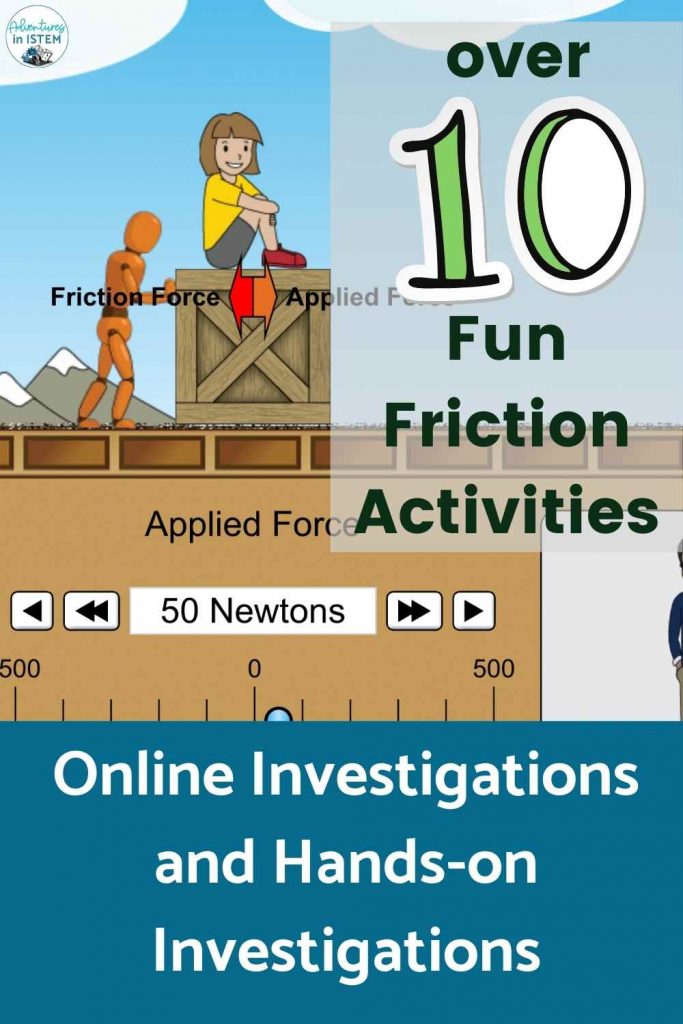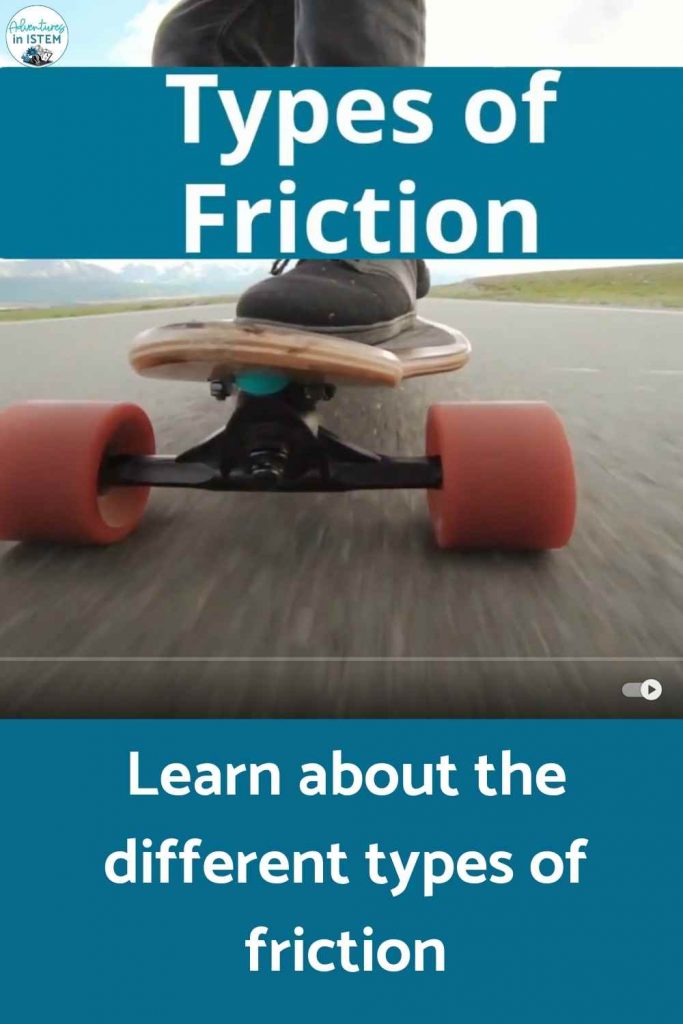My favorite quarter is the third quarter which is all about physics. I love teaching about motion, force, and energy. One of my favorite forces to teach about is friction. I like to have multiple friction activities for my students and then challenge them to answer the questions, Is friction a friend or a foe? Below you will find some great friction activities you can use with your students.

Hands-On investigations
With these activities, you can have students doing multiple investigations using the same materials but changing a different variable for each activity.
Materials needed: Newton’s scale, rough sandpaper, smooth sandpaper, pencils (the type that is round and can roll) or wood skewers, book or piece of wood for pulling across different surfaces, a string to attach the books to the newton’s scale, extra books for added weight
- Sliding Friction Investigation: Have students keep the mass the same but change the surface that they are pulling the book across from smooth (desktop), smooth sandpaper, and rough sandpaper. This activity will show students that the rougher the surface, the greater the force of friction.
- Mass and Friction Investigation: Have students keep the surface the same, I suggest the smooth sandpaper, and then change the amount of mass they are pulling by adding books. This activity will show students that the more mass an object has, the more friction is applied to the object.
- Rolling Friction Investigation: Have students keep the mass the same but change the type of friction being applied from sliding to rolling. They will first pull the book over the smooth desktop surface. Then they will place the book on top of the pencils and pull the book across the pencils which should roll to represent rolling frictions. This activity will show students that rolling friction is easier to overcome than sliding friction.
Online Investigations
These activities only require a computer and internet.
- Energy skate park: This free HTML investigation from pHET has students exploring skateboarding and the affects of friction on the skateboard. Have the students do the graph activity version. They should keep the set gravity and make it so that the skateboard needs to stick to the track and set the graph to time. They can then change up the friction and see how the different amounts of friction affect the engery of the system and the speed of the skater over time.
- Force and Motions Basics: This free HTML investigation from pHET has students exploring friction and the mass of objects. This the online version of the hands-on activity. Students can do two different investigations with this one simulation. They can keep the mass the same and then modify the friction to see how it affects the amount of applied force needed to move the object. They can then keep the friction the same, I recommend having them set it in the middle, and change the amount of mass to see how the amount of mass can change the amount of applied force needed to move the object.
- Friction: If you want students to understand why friction causes heat and what is happening at the molecular level when two surfaces slide past each other than you will want them to do this free HTML pHET investigation. It is a short investigations that shows students the molecules and why heat is created.
Videos
These videos help students understand friction and bring their interest into science.
- Types of friction
- Science of the Winter Olympics: Friction of Curling
- Friction and Heat: the Science of Speed (NASCAR)
- Tire and Pressure: the Science of Speed (NASCAR)
- Science of the Winter Olympic Games: Engineering Competition Suits
All of these activities will get your students excited about science and help them learn about friction. Check out my science station friction activity with three different investigations ready to go.
